Dehumidification
How is dehumidification performed?
Understanding Humidity – Key Parameters
Humidity is present all around us and humidity in the air is expressed as relative humidity (RH). Relative humidity indicates how much water vapor is present in the air compared to the maximum amount the air can hold at a given temperature. It is influenced by factors such as temperature, pressure, and the amount of water in the environs – as the temperature rises, the air can hold more moisture, while at lower temperatures, moisture condenses.
As the temperature rises, the air can hold more water vapor before saturation occurs. In contrast, at lower temperatures, the air’s ability to retain moisture decreases, so excess water vapor condenses in the form of droplets or water mist. This process is directly related to the dew point — the temperature at which condensation of water vapor begins in given atmospheric conditions.
Two Common Industrial Dehumidification Methods: Condensation and Adsorption
Condensation dehumidification works by cooling the air below its dew point, causing moisture to condense on the evaporator coil inside the dehumidifier. This method is optimal for spaces with higher temperatures and relative humidity, such as warehouses, production halls, and public facilities.
A key application of condensation dehumidifiers is in mobile unit designs, especially when users need temporary or flexible humidity control in one or more areas. Their mobility allows for easy relocation and adaptation to changing conditions, ensuring efficient dehumidification where needed, without permanent installation.
Adsorption dehumidification operates using a silica gel rotor that adsorbs moisture from the air. This method is especially effective when precise humidity control is required, such as in the pharmaceutical and food industries, archives, museums, and similar environs. Adsorption dryers are reliable and efficient even at low temperatures, providing stable performance regardless of ambient temperature.
Choosing the appropriate method depends on the specific industrial requirements and user needs and is carefully considered during the design of the final solution.
Why is dehumidification important in industry?
Industrial air dehumidification is essential for maintaining optimal working conditions, protecting equipment and processes. High humidity can cause condensation on surfaces, leading to corrosion, failures in electronic components, and ice formation on cold surfaces. Additionally, increased moisture promotes the growth of mold, fungi, and bacteria, while properly controlled conditions prevent their spread.
Dehumidification is also crucial for preserving the quality of hygroscopic materials such as sugar, salt, and powdered pharmaceutical forms, as well as food products that require low relative humidity to remain stable. In product drying processes, low humidity ensures efficiency, especially for materials sensitive to high temperatures.
The efficient dehumidification systems we design maintain relative humidity at optimal levels, preventing harmful effects and ensuring long-term reliability in production. This improves energy efficiency, reduces maintenance costs, and guarantees uninterrupted operation of production processes.
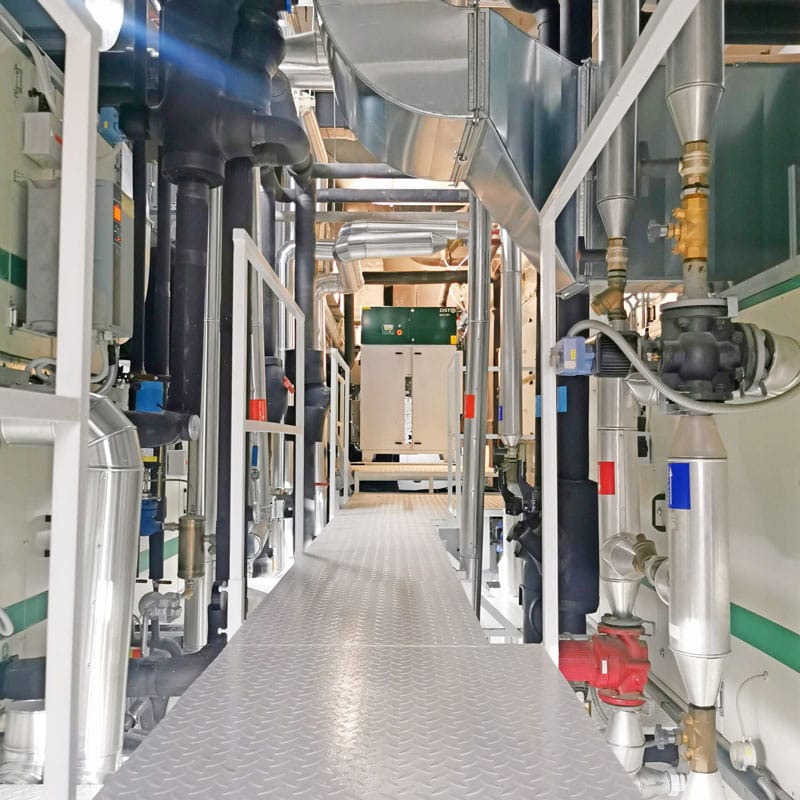
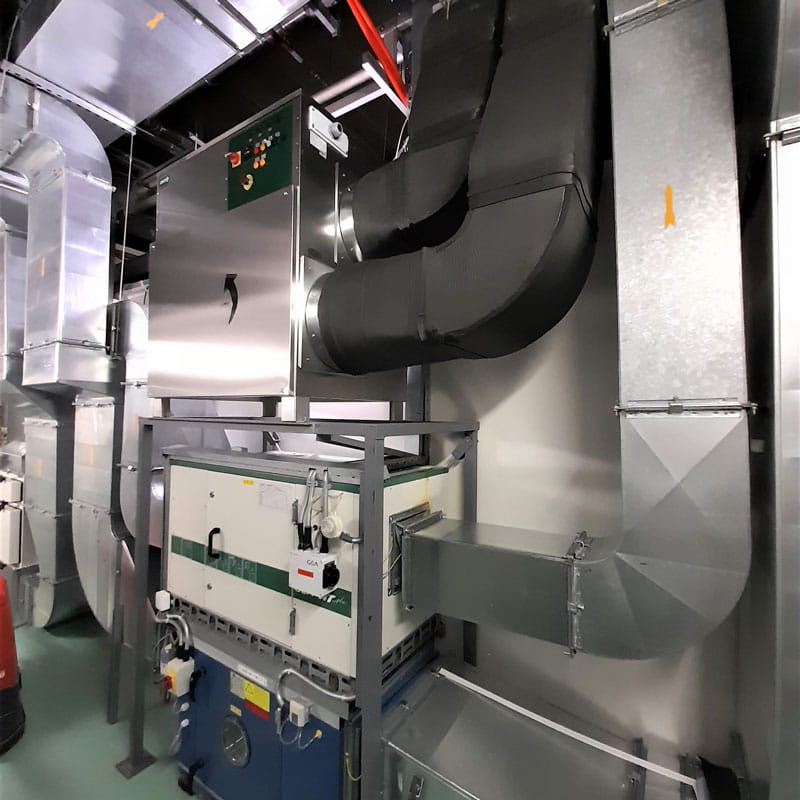
Dehumidification for industry
Moisture drying - our works
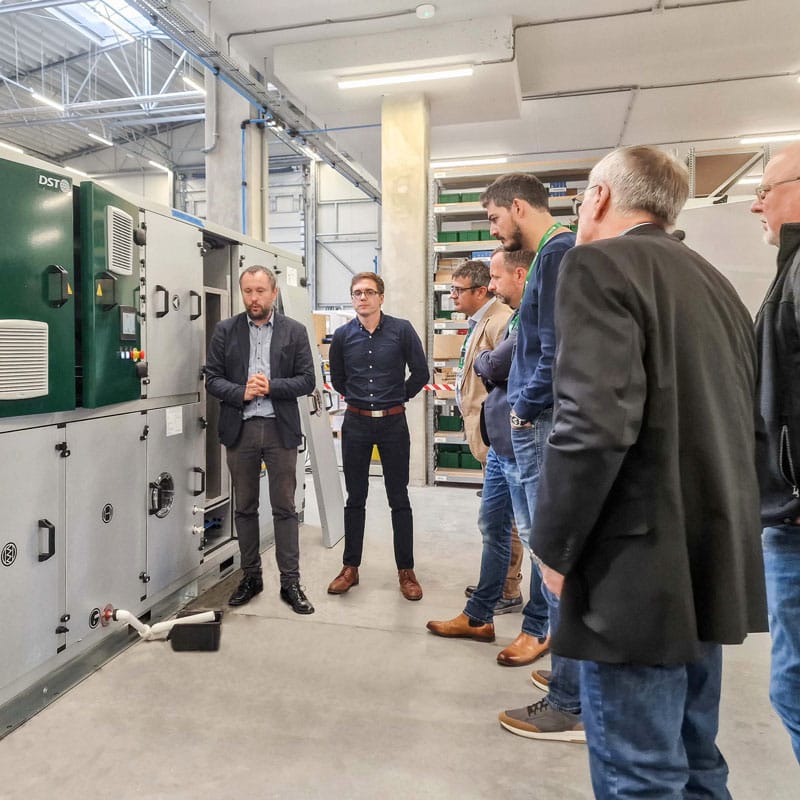
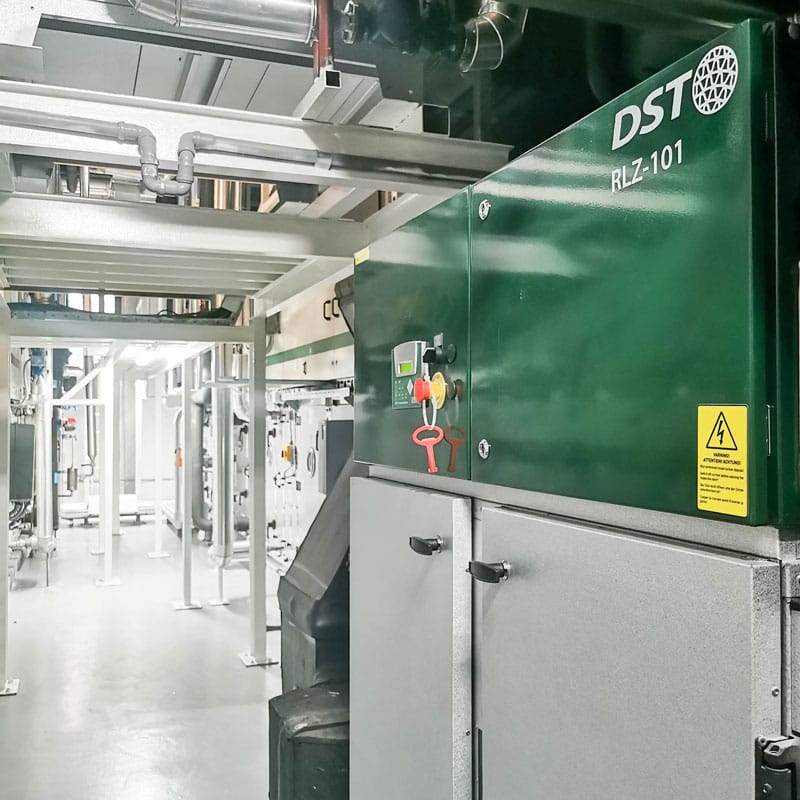
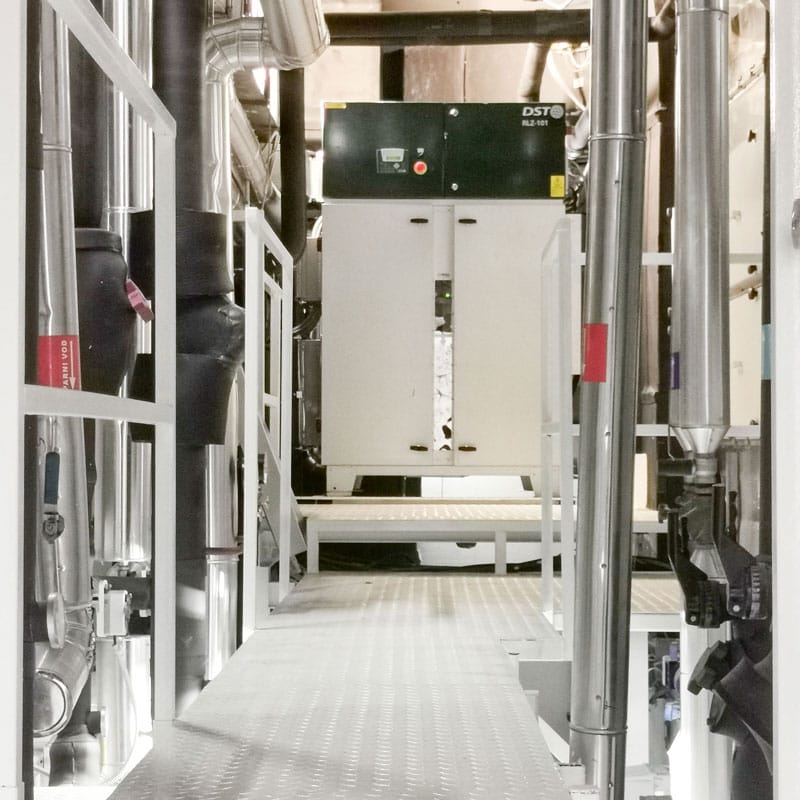
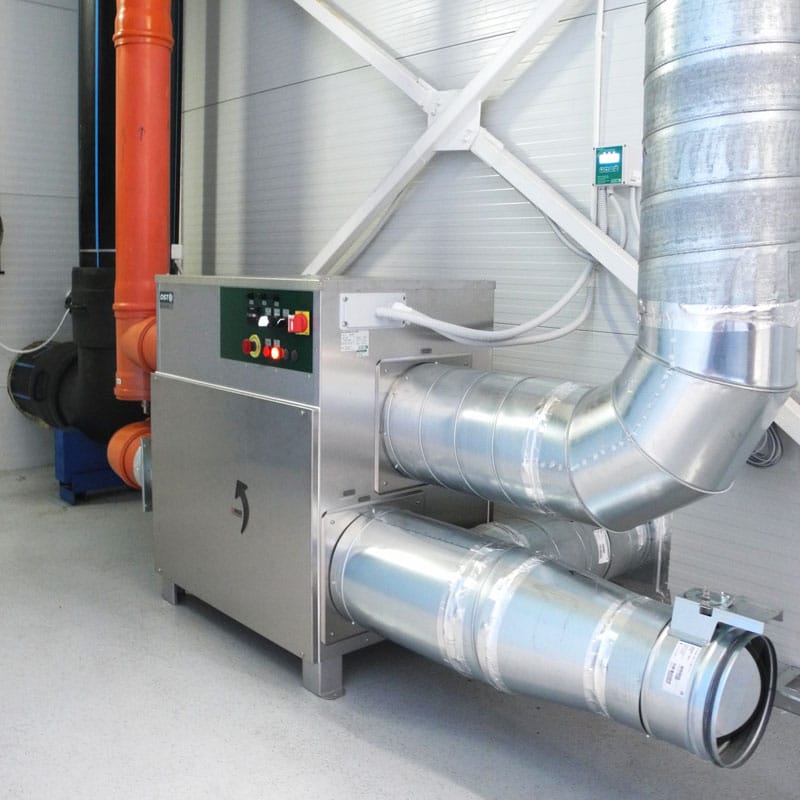
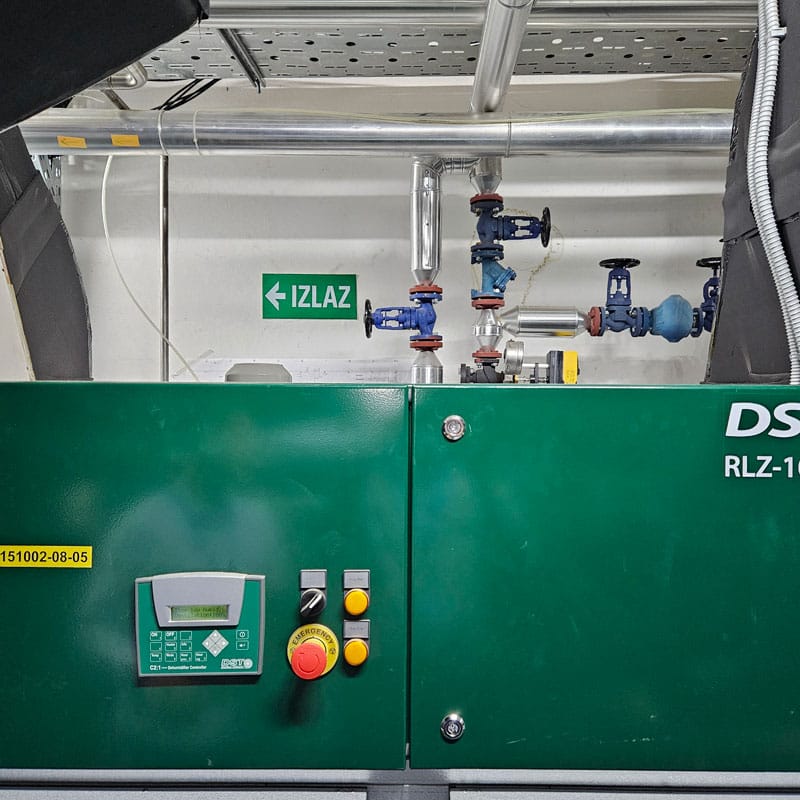
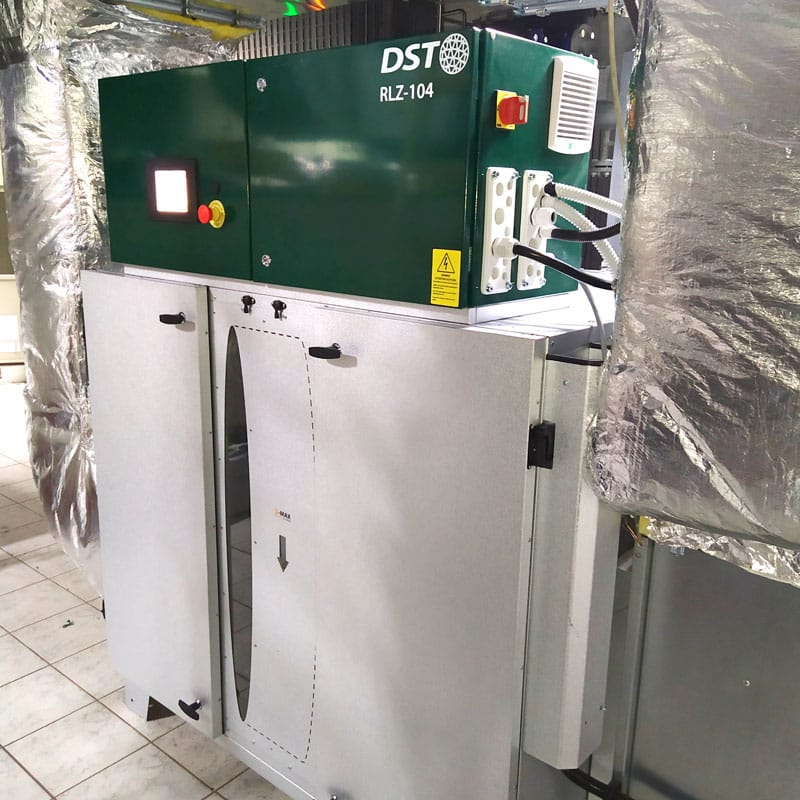
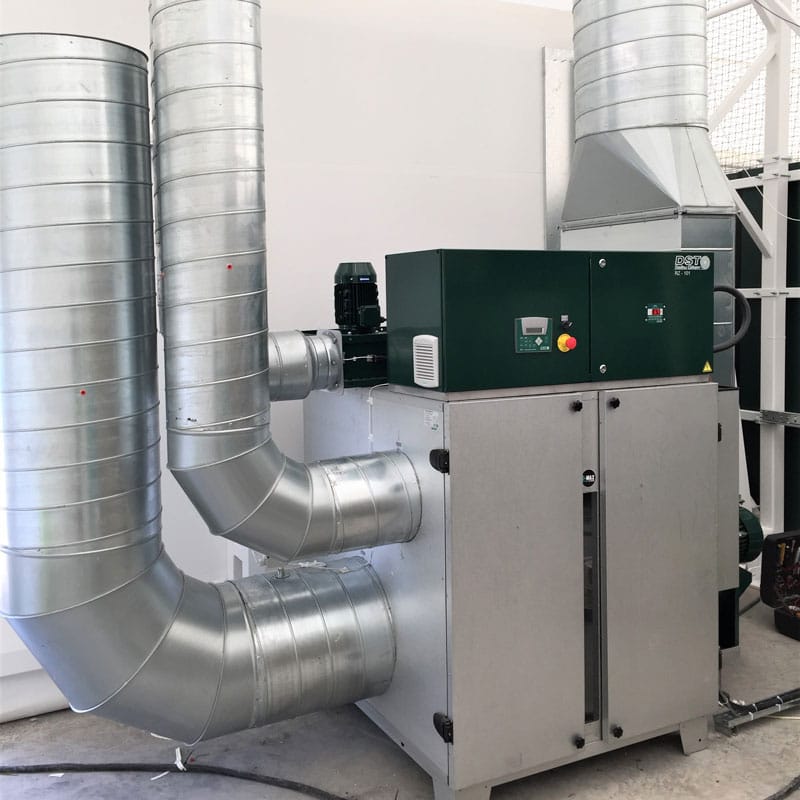
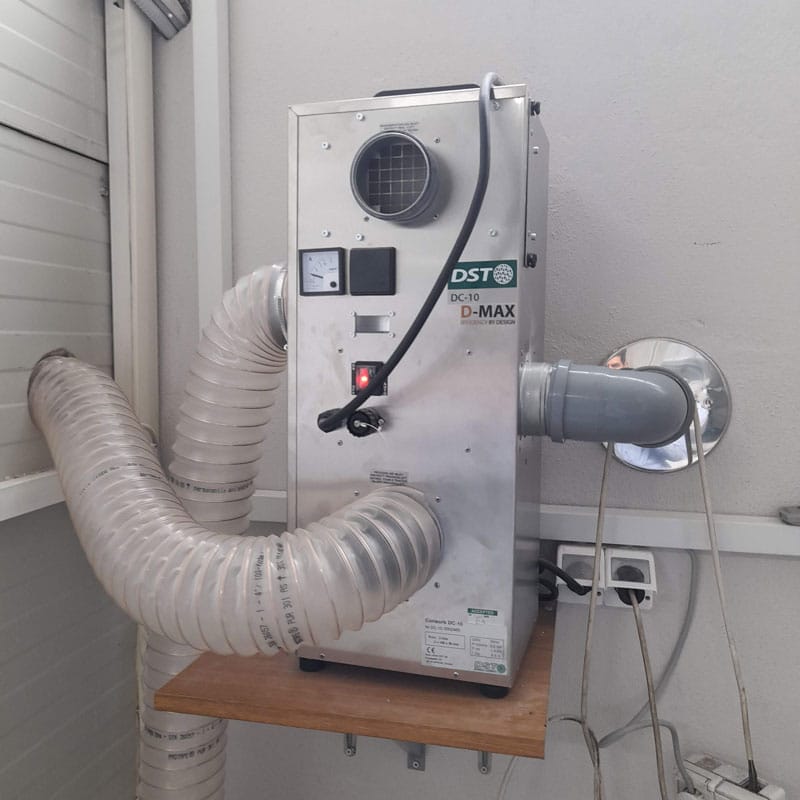
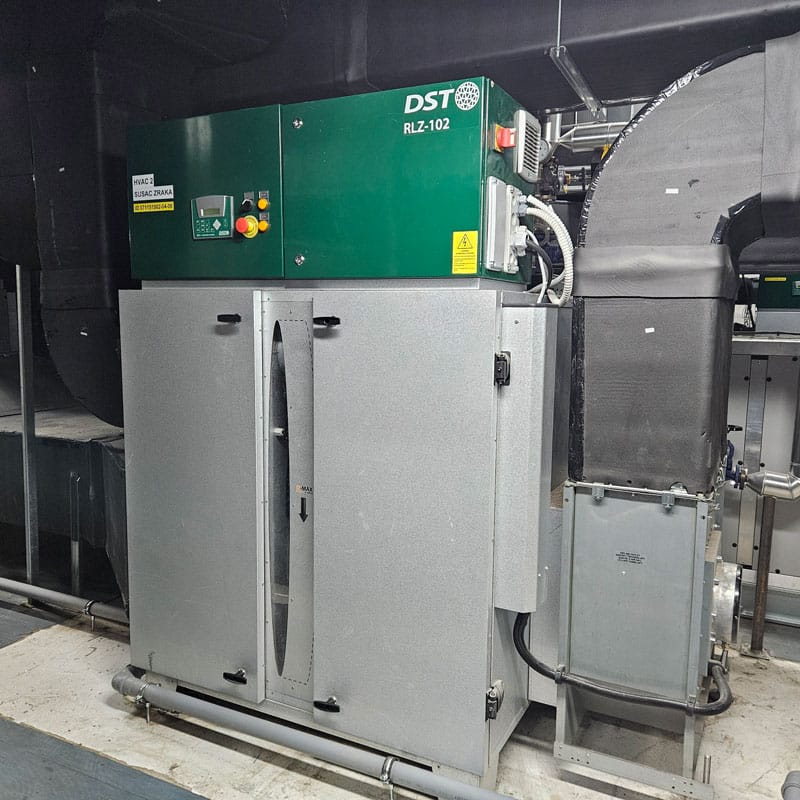
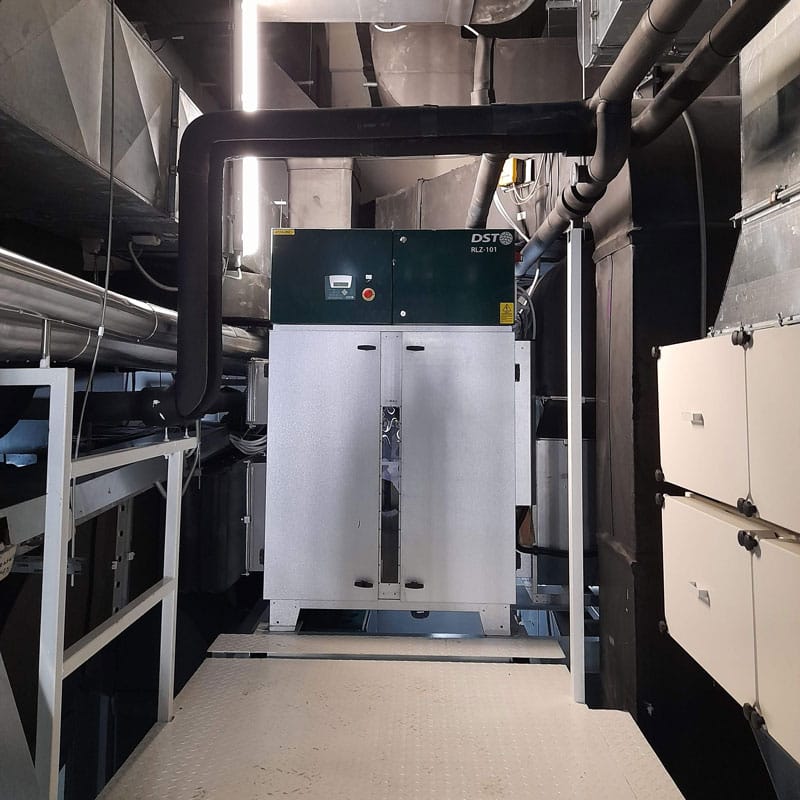
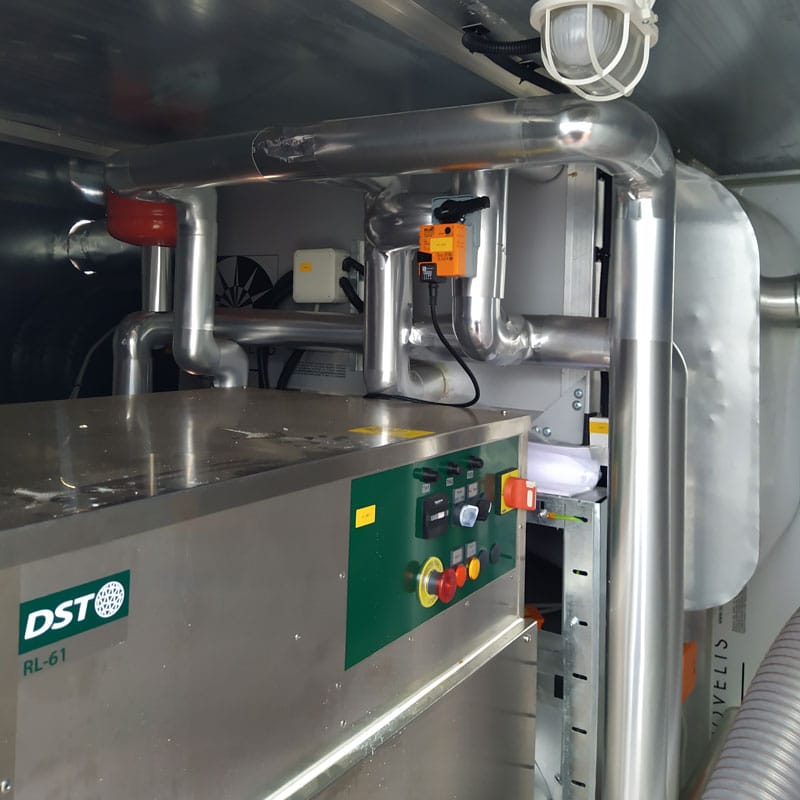

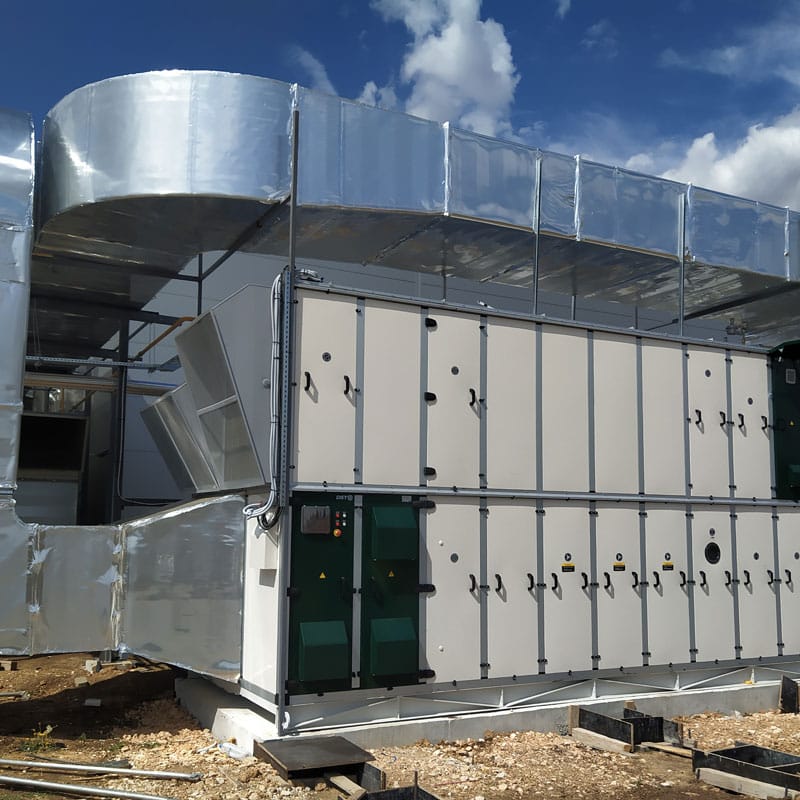
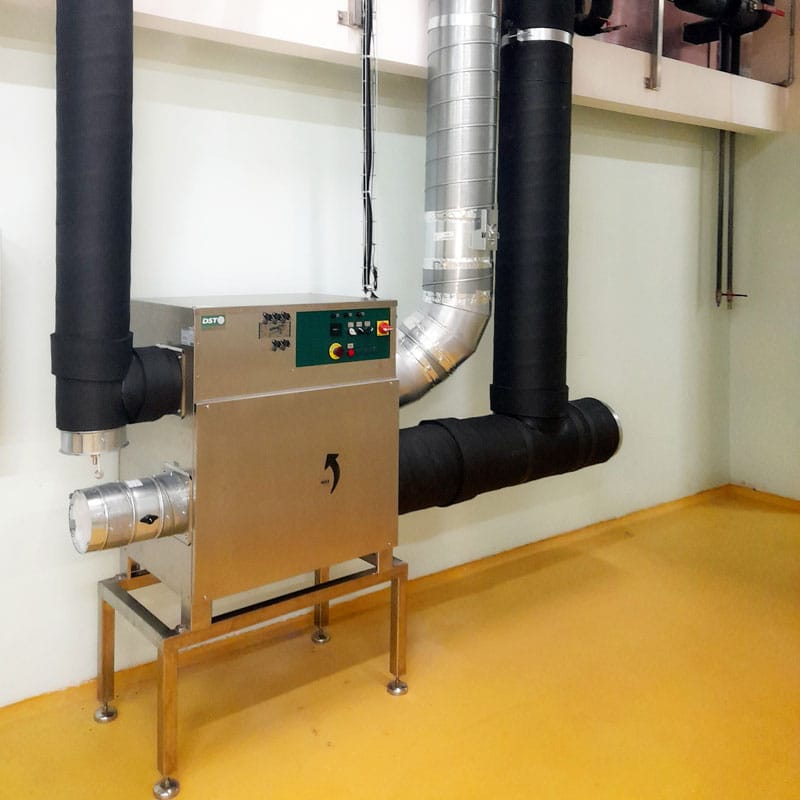
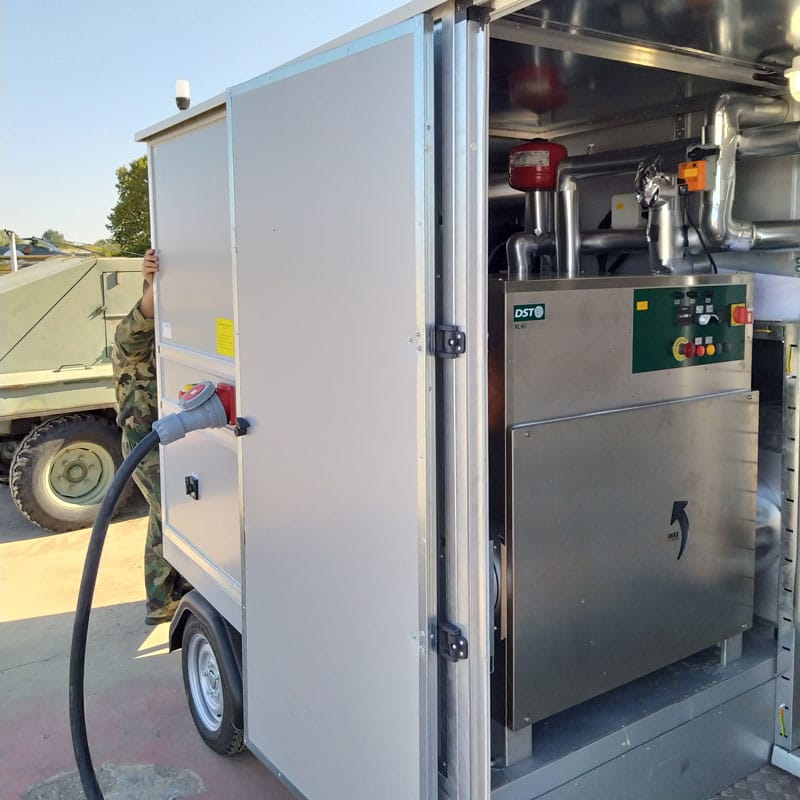

Dehumidification Solutions in Industry and Their Benefits
Nowadays, there is a great need for moisture regulation in industrial processes, which is an essential factor in preserving product quality, protecting equipment, and creating stable and efficient working conditions. Uncontrolled humidity can cause problems such as condensation, corrosion, failures in electrical and electronic components, mold and mildew growth, and in the food and pharmaceutical industries, clumping and deterioration of hygroscopic materials. Our specialized solutions provide efficient humidity control, preventing these issues and ensuring long-term stability of the conditioned spaces.
The devices we offer provide flexible solutions for various applications, from standalone units that are independently installed in spaces and directly prepare dry air, to integration into HVAC systems, which can be connected to an air handling unit for more efficient humidity control in the conditioned space. This approach allows precise humidity regulation, increases energy efficiency, and reduces maintenance costs, providing industry with long-term stable working conditions.
Industrial dehumidification has broad applications across different sectors. In the food industry, proper humidity control prevents ingredient clumping during mixing, improves the drying process, and enables smooth operation of production lines throughout the year. In the pharmaceutical industry, stable humidity levels are critical for product quality and the preservation of hygroscopic materials’ effectiveness. Cold storage facilities, meat processing plants, and warehouses greatly benefit from eliminating condensation and reducing the risk of ice formation, improving working conditions, and reducing the need for frequent cleaning and maintenance, resulting in significant cost savings.
Besides improving production processes, proper humidity control contributes to higher hygiene standards and reduces health risks, as seen in operating rooms in hospitals or clinics.
Regardless of the industry type, our dehumidification systems deliver reliability, energy efficiency, and long-term process stability. Learn how we can enhance your production process and ensure ideal working conditions with our innovative humidity control solutions.
Application of Dehumidifiers in Public Facilities
Air dehumidification is crucial for maintaining optimal conditions in public facilities, where excessive humidity can compromise the quality of spaces, materials, and equipment. When it is necessary to maintain humidity levels above 50% RH, condensation dehumidifiers offer a reliable solution, improving working and living conditions in various environments.
Solutions cover different types of spaces, enabling efficient drying of materials and preventing mold growth, protecting materials from corrosion, as well as basements and enclosed areas, improving air quality when certain products need protection from deterioration. They are especially important in pools and wellness centers, where they eliminate excess moisture and enhance visitor comfort.
Their flexible application allows installation as mobile (portable) units that easily adapt to spaces without the need for complex installations. This makes them suitable for facilities requiring temporary humidity control solutions or lacking infrastructure for fixed dehumidification systems.
Adequate humidity regulation not only improves the quality of stay in these facilities but also reduces maintenance costs and extends material lifespan. Using dehumidifiers brings long-term benefits in infrastructure protection and ensures stable working conditions, making public spaces healthier, safer, and more comfortable to use.
Main Advantages of Industrial Adsorption Dehumidification
In industrial applications, we most commonly use adsorption dehumidifiers due to their efficiency in controlling low humidity levels. These devices enable precise dehumidification even under demanding conditions of very low humidity and temperature, while simultaneously reducing energy consumption compared to alternative methods.
Adsorption dehumidifiers have a high moisture removal capacity, which makes them ideal for production and storage areas where maintaining a dry atmosphere is necessary to preserve material quality and ensure smooth production processes. Their simple design minimizes maintenance requirements, while robust and compact construction guarantees long-term reliability. Thanks to modular configurations, adsorption dehumidifiers adapt to a wide range of industrial applications.
